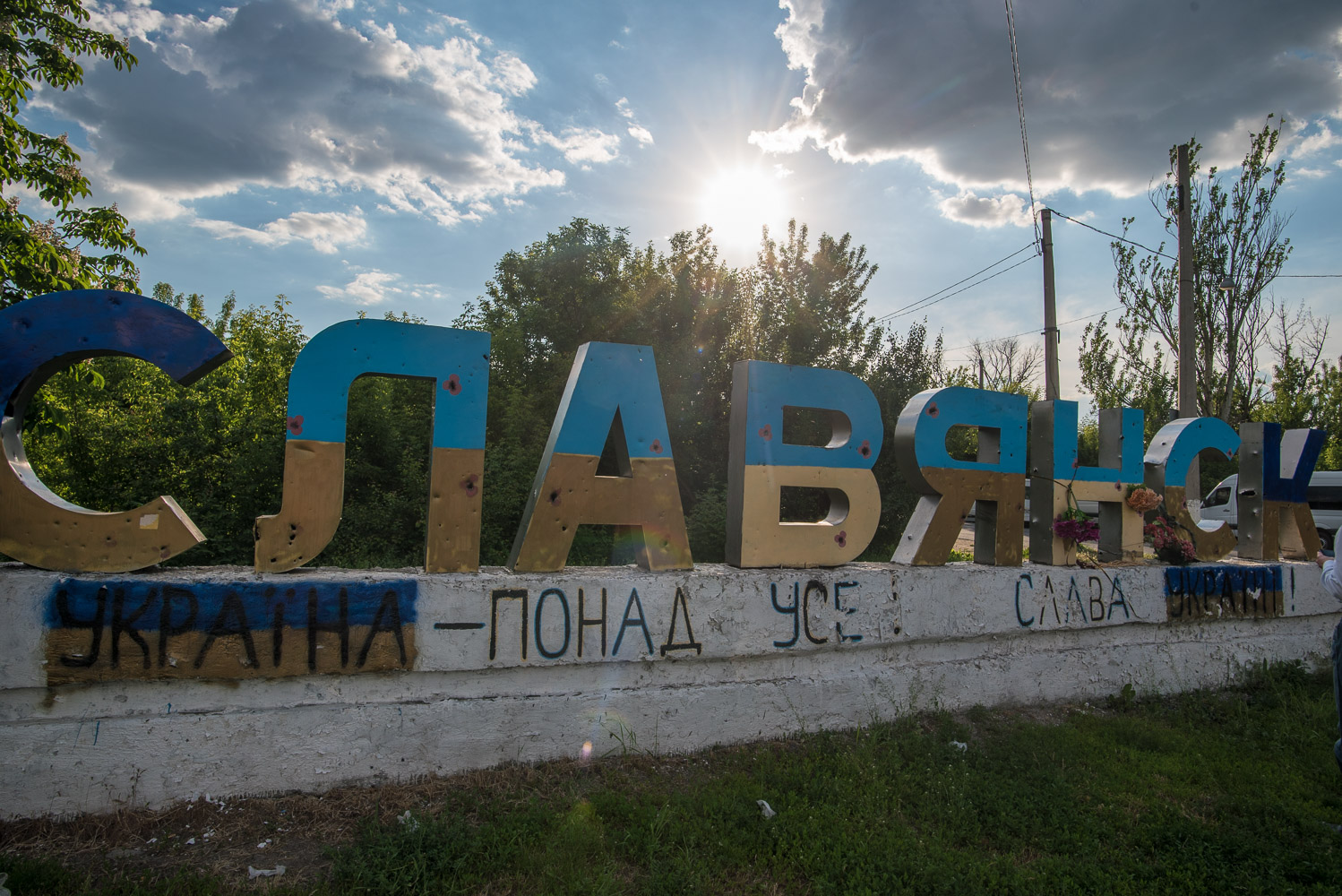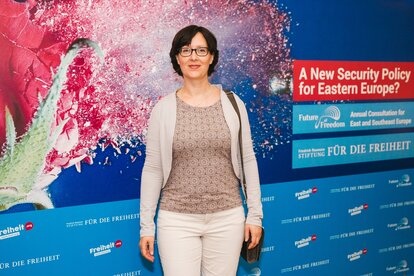Peace is Far Away - 3 Years after the Minsk Agreements.

February marked the third anniversary of the signing of the Minsk Agreements. The Donbass region is far from becoming peaceful. We talked to the Foundation’s Project Director, Beate Apelt, in Kyiv about the reasons why the Minks II agreement failed and how the situation could develop in the future.
Three years ago, 12th February 2015, the trilateral contact group signed the Minsk II agreement, which was negotiated by the Presidents Poroshenko, Putin and Hollande and the Federal Chancellor Merkel. The agreement is aimed at stopping the war in eastern Ukraine and concretizes implementation of the Minsk I Agreement, which was signed at 5th September 2014. How does the situation in the conflict region look like today?
Even three years after the agreement we still have to talk about war. Every day the OSCE observer mission reports plenty ceasefire violations, people get wounded or killed every week. The humanitarian situation is catastrophic, the supply situation of the people, among which many are elders and children, is getting worse. In addition to that, severe environmental problems have emerged, which are harmful to public health. Near Horlivka, a city which is close to the front line, contaminated water from the old mines comes to the surface and thereby pollutes the drinking water.
The law on reintegration of occupied territories, which was passed by the Ukrainian parliament on 18th January 2018, is a display of a political position, which does not change the urgent situation in the Donbass region. The law does not address the Minsk Agreements, but according to experts it does not contradict it either. It is not clear, how it could help resolving the conflict.
Why did the implementation of the Minsk agreements fail? Why is no progress being made?
For that you have to understand, that in the first place the Minsk Agreement was a tool to stop the combat and achieve a ceasefire. This goal was widely achieved. However, the agreement was signed in a time, which was militarily catastrophic for Ukraine. And it therefore bears the hallmarks of Moscow. Some points of the agreement, for example, the conduction of local elections, are not feasible, before Ukraine regains full control over the region. The “governments” of the people’s republics, which would be described as criminal groups, and their violent rule reduce every thought about local elections to absurdity.

Beate Apelt, Project Director FNF Ukraine
Another big problem of the Minsk Agreements is that according to them, Russia is not part of the conflict. And that Russia therefore supports the claim that the war in Ukraine is an internal conflict. De facto Russia controls the development of the occupied territories. Therefore, Russia could withdraw and make peace talks possible.
Given the fact that the Minsk Agreements are not feasible and are just a place for another diplomatic solution, how would that solution look like?
At the moment neither a massive military escalation with additional land grabbing by the Russian military or by the Russian-supported armed groups, nor a return of the occupied territories under the control of Kyiv is very likely. The question is how it would be possible to resolve the gridlocked (not frozen) conflict by diplomatic means. The talks about a UN peacekeeping mission, which were held by the U.S. Special Representative Kurt Volker and by the Russian negotiator Vladislav Surkov, are the source for greatest hope. So far the different positions are far from each other. From Ukrainian point of view, the mission should be extended to the whole occupied territory and Russian soldiers should be excluded from participation. However, the Russian side supports a peacekeeping mission, which would be only active at the conflict lines to support the OSCE mission. This would reinforce the status quo. Therefore it all depends on whether the international community will keep the talks going through intense diplomacy and continuing pressure by the sanctions to achieve a peacekeeping mission, which would cover the whole territory. A big responsibility lies with new German foreign minister, who (if the foreign minister remains the same) did not stand out for being critical of the Kremlin.
Watch a series of documentaries from Donetsk region here. Below is the short documentary film, recorded during the security-focused Future of Freedom consultation.
Documentary Film: A New Security Policy for Eastern Europe? The Case of Ukraine